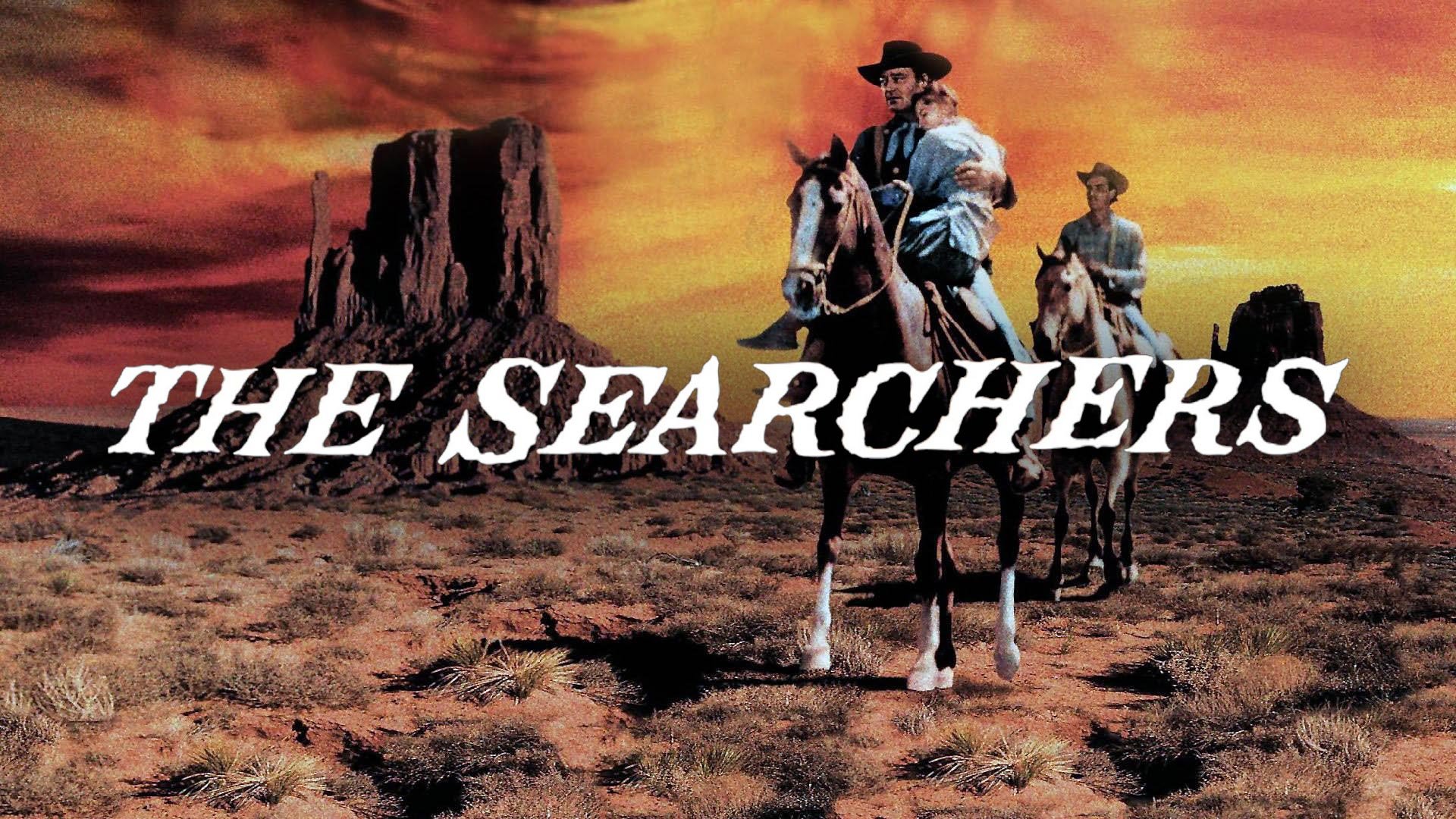The Searchers (1956)

Released in 1956, “The Searchers” is widely regarded as one of the most significant films in the Western genre, renowned for its powerful storytelling, rich cinematography, and complex characterizations. Directed by John Ford and adapted by Frank S. Nugent from Alan Le May’s 1954 novel, the film stands as a quintessential example of the genre’s capacity for dramatic depth and psychological complexity. With its nuanced portrayal of themes such as racism, revenge, and redemption, “The Searchers” continues to captivate audiences and scholars alike, maintaining its status as a classic of American cinema.
At the core of “The Searchers” is the compelling story of Ethan Edwards, portrayed by John Wayne in one of his most memorable performances. Ethan is a former Confederate soldier who returns to his family’s Texas homestead after the Civil War. His return, however, is overshadowed by a harrowing tragedy: his niece, Debbie, has been abducted by Comanche Indians. The film’s narrative centers on Ethan’s relentless quest to rescue Debbie and his struggle to overcome personal demons and prejudices.
John Wayne’s portrayal of Ethan Edwards is both powerful and complex. Wayne brings a rugged intensity and emotional depth to the character, making Ethan a quintessential yet deeply flawed anti-hero. Ethan’s journey is marked by a profound internal conflict, as he grapples with his own hatred towards the Comanche and his increasingly obsessive quest for vengeance. Wayne’s performance captures the duality of Ethan’s character—a man driven by both a sense of duty and a personal vendetta, whose actions are as unsettling as they are heroic.
John Ford’s direction in “The Searchers” is masterful, showcasing his unparalleled skill in crafting visually stunning and thematically rich Westerns. Ford’s use of widescreen cinematography, particularly his framing of the vast American landscapes, creates a sense of both grandeur and isolation. The iconic shots of the desert vistas and the striking use of color and composition serve to underscore the film’s themes of exploration and existential struggle. Ford’s direction also emphasizes the contrast between civilization and the untamed frontier, enhancing the film’s dramatic tension.
The screenplay by Frank S. Nugent, based on Alan Le May’s novel, is notable for its exploration of complex themes and character dynamics. The film delves into issues of racism, cultural conflict, and the moral ambiguities of revenge. Ethan’s attitude towards the Comanche is steeped in prejudice and fear, reflecting the broader historical context of Native American relations. This portrayal adds a layer of historical authenticity while also serving as a critical commentary on the nature of frontier justice and personal morality.

The film’s supporting cast contributes significantly to its depth and resonance. Jeffrey Hunter plays Martin Pawley, Ethan’s adopted nephew and the film’s moral counterpoint. Martin’s character is integral to the narrative, embodying the possibility of reconciliation and understanding between cultures. Natalie Wood, as Debbie Edwards, delivers a poignant performance as the abducted niece, whose return represents both a personal and cultural resolution.
The score by composer Max Steiner further enhances the film’s emotional impact. Steiner’s music, characterized by its sweeping orchestral arrangements, complements the film’s epic scope and dramatic intensity. The score underscores key moments of tension and tragedy, enriching the viewer’s experience and deepening the emotional resonance of the story.

“The Searchers” is also noted for its influence on subsequent films and filmmakers. Its exploration of complex themes and its innovative use of cinematography have inspired numerous directors and have cemented its place as a seminal work in the Western genre. The film’s impact extends beyond its immediate genre, contributing to broader discussions about American identity, history, and the portrayal of cultural conflict.

Despite its acclaim, “The Searchers” is not without its controversial aspects. The film’s depiction of Native Americans and Ethan’s racist attitudes reflect the prejudices of the time, prompting discussions about the representation of Indigenous peoples in Westerns. These elements are both a product of their era and a catalyst for critical examination of the genre’s conventions and historical narratives.

In conclusion, “The Searchers” remains a towering achievement in American cinema, celebrated for its cinematic artistry, complex characterizations, and thematic depth. Directed by John Ford and featuring a landmark performance by John Wayne, the film continues to be a touchstone for both fans and scholars of the Western genre. Through its exploration of vengeance, morality, and cultural conflict, “The Searchers” offers a profound and enduring examination of the human condition set against the backdrop of the American frontier.










